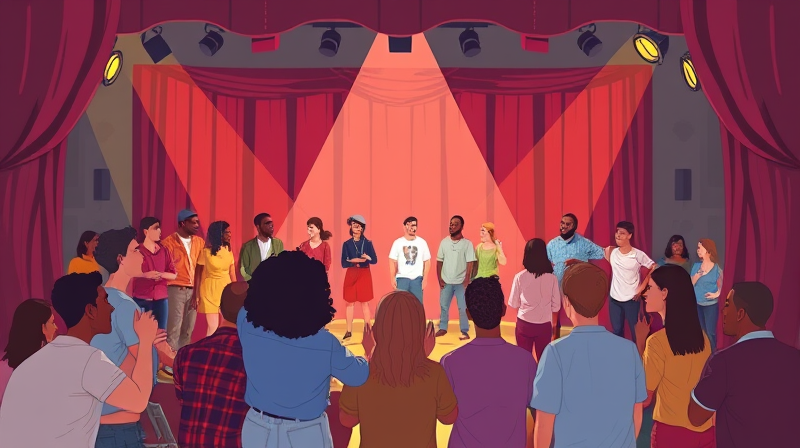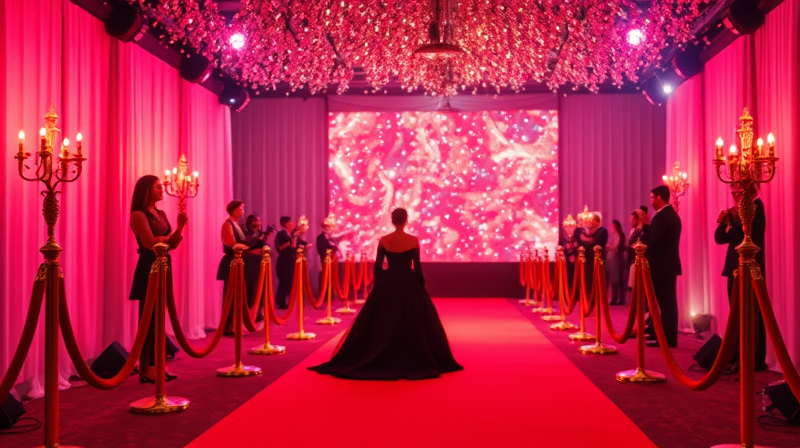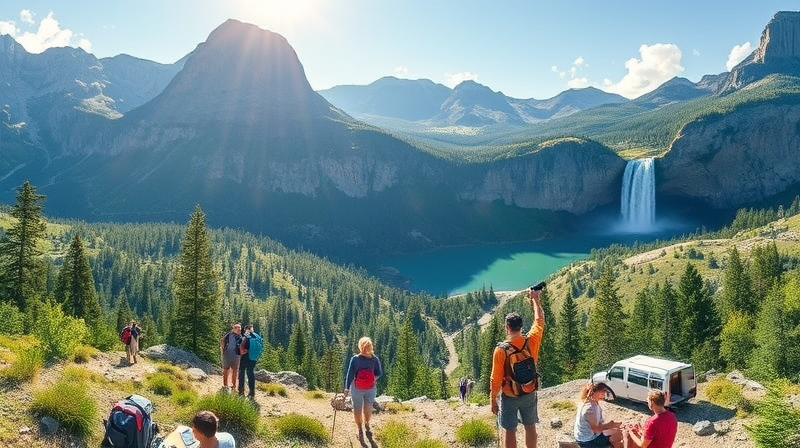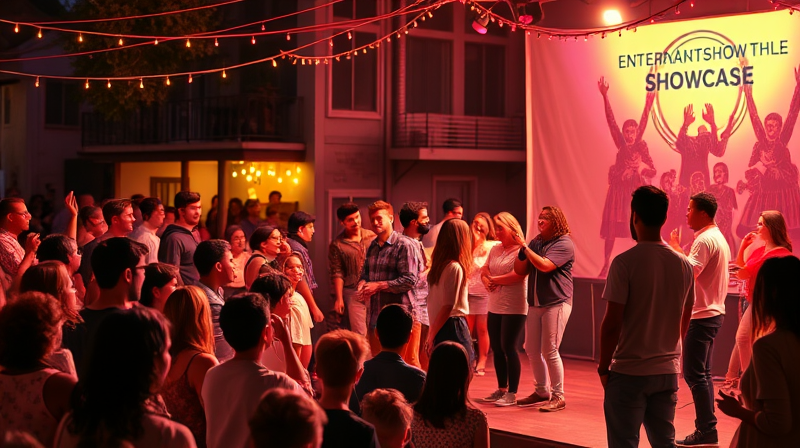Embarking on the journey of staging a community show from scratch is a transformative experience. It not only brings together the creative energy of a community but also celebrates its diversity, culture, and talent. This process is an opportunity for personal growth, community engagement, and creative expression.
Every successful project starts with a strong foundation built on passion and collaboration. When you bring together local talents, resources, and ideas, you create an environment filled with inspiration and unity. This guide outlines key steps to help you launch a memorable community show while ensuring everyone feels valued and appreciated.
Engage With Your Community
Before diving into the specifics of a production, engage with your community to gather ideas, opinions, and support. This early engagement helps to form a project that truly represents the people involved. Connecting with local residents, artists, and organizations fosters a sense of belonging and shared ownership.
- Listen and learn: Host town-hall meetings or small focus groups to understand what the community wants.
- Inclusion matters: Ensure that voices from all backgrounds are heard by actively reaching out to diverse groups.
- Create a core team: Identify community leaders who are passionate about the arts to guide and support your project.
This initial step lays the groundwork for a project that is inclusive and truly community-rooted.
Gathering local support early on will transform your production into a collaborative effort where every participant feels empowered and involved.
Choosing the Right Show
The selection of your show is critical. A well-chosen production can resonate deeply with the local audience. Look for projects that offer both creative and commercial potential. Consider contemporary comedies, heartfelt dramas, or even musicals that have proven to be popular choices.
The show must inspire both the participants and the audience. Titles that blend humor with meaningful narratives or dramatic flair are often the best picks. Drawing inspiration from trends and previous community successes can direct your decision-making process.
As you decide on the production, remember that your community's tastes and traditional values should influence your choice. This thoughtful selection can lead to increased ticket sales and a stronger community connection.
Building a Passionate Team
A community show isn’t just about the final performance; it’s about the team effort that goes into making it a success. Building a well-rounded team is essential.
Key roles to consider include:
- Director/Producer: The visionary who channels creativity into structure and organization.
- Production Team: Experts in lighting, sound, costume, and set design who ensure the technical excellence of the show.
- Cast & Crew: Local talent that brings life to the script with authenticity and passion.
- Community Partnerships: Collaborations with local organizations can lead to valuable resources and added support.
When every member of the team understands their role in the larger picture, the production feels more like a collective masterpiece rather than an individual endeavor.
Practical Planning and Budgeting
Once your team and show are in place, it’s time to solidify your plans. Practical planning transforms creative ideas into actionable steps. Organize a timeline that includes auditions, rehearsals, set building, and technical run-throughs. A well-planned schedule is the backbone of a successful production.
Financial planning is equally important. Develop a clear budget that covers all aspects of the production, from purchasing rights and costumes to marketing and venue rental. Explore funding avenues such as community grants, sponsorships, ticket sales, and crowdfunding. A realistic budget helps avoid last-minute surprises and keeps the project on track.
Rehearse, Build, and Celebrate
The creative phase is where the magic happens. Rehearsals are not just practice sessions; they are moments of community bonding that enhance the overall production. Building sets, rehearsing lines, and perfecting technical cues allow every participant to contribute their best work.
Encourage an environment where every idea is valued and every individual feels supported. As the performance day draws near, build a sense of excitement and anticipation through regular updates and collective celebrations. The energy of collaboration eventually translates into an unforgettable show.
Finally, on the night of the performance, embrace the culmination of all your hard work with joy and pride. Organize a post-show celebration to acknowledge everyone involved. This reflection not only honors the success of the current show but also sets the stage for future creative endeavors.
Every moment, from the initial planning to the final applause, is a chance to celebrate community spirit and artistic expression.
Reflect and Document for Future Growth
After the curtain falls, reflection is critical. Collect feedback from both participants and the audience to understand what worked well and where improvements can be made. Documenting photos, videos, and testimonies can serve as a rich repository of experience and inspiration for future productions.
This process of reflection and documentation not only preserves the memories but also helps in planning future projects. It’s a continuous cycle where each production builds upon lessons learned, making every subsequent show even more impactful.
Remember, the heart of a community show lies in its ability to unite and reflect the spirit of its participants. Keep pushing creative boundaries, and use every experience as a stepping stone to further artistic exploration and community bonding.
In the end, staging a community show is an endeavor filled with challenges and rewards. It requires meticulous planning, creative teamwork, and most importantly, a committed community. With thoughtful preparation and a passion for the arts, your production will not only entertain but also enrich the lives of those involved.








